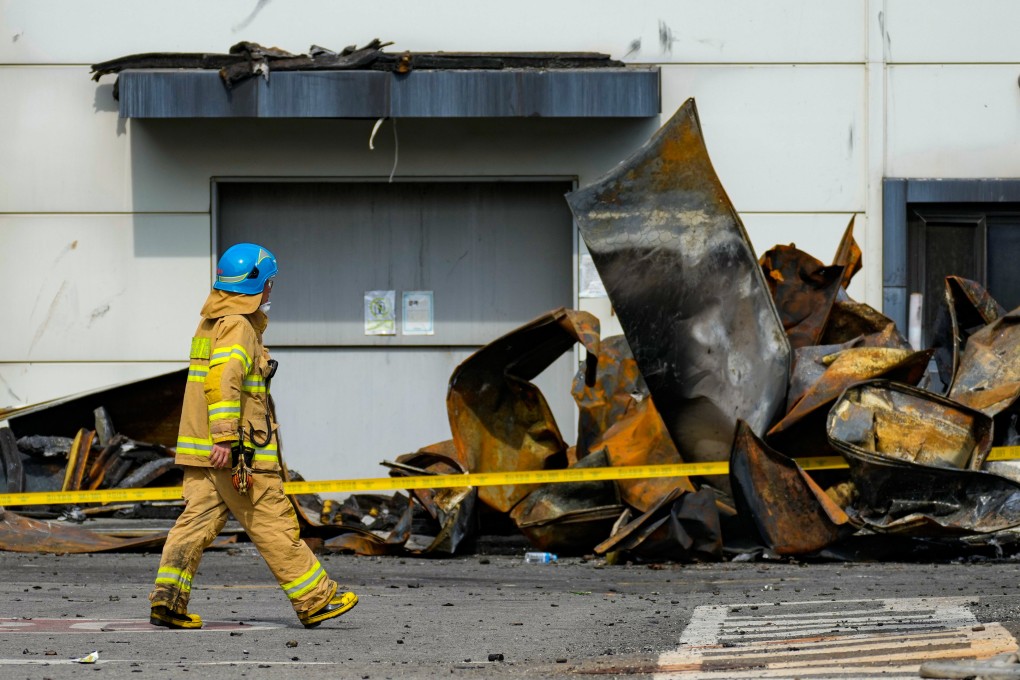Opinion | It’s time Asia reckoned with lithium-ion batteries’ sustainability problem
- Asia can lead the green energy race and improve safety standards by phasing out lithium-ion batteries in favour of sustainable alternatives

The Aricell factory housed an estimated 35,000 battery cells on its second floor, where they were inspected and packed. More batteries were stored elsewhere. While the cause of the explosion is unclear, lithium-ion batteries’ flammable properties are well known.
Lithium-ion batteries can produce dangerous levels of heat, short circuit easily and can cause fires that are hard to extinguish. That’s why aviation authorities across the world have banned them being shipped as cargo or in checked-in baggage aboard passenger flights.
For years, mining companies have been extracting billions of dollars worth of lithium from the Atacama region in Chile and in Argentina, where this mining has deeply affected indigenous communities. In China, graphite production for lithium-ion batteries has caused severe pollution.

